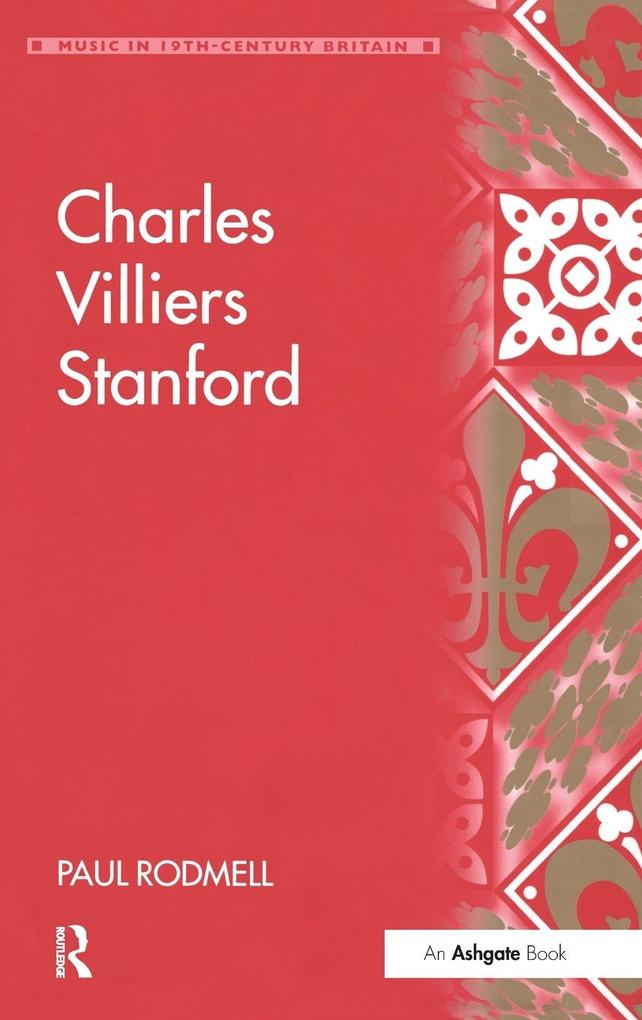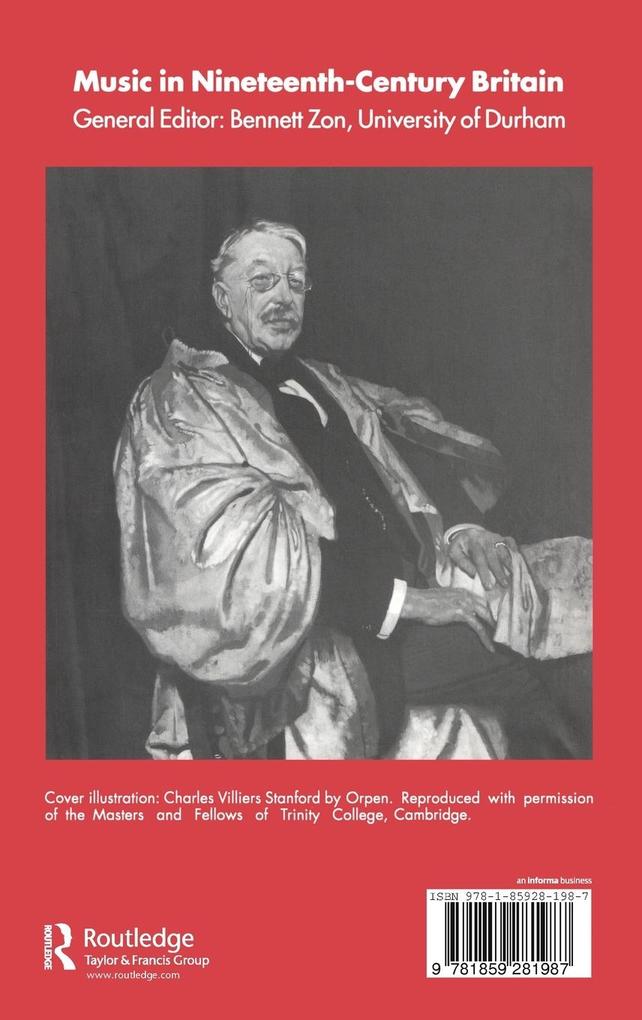
Zustellung: Mo, 11.08. - Do, 14.08.
Versand in 7 Tagen
VersandkostenfreiThe first book devoted to the composer Charles Villiers Stanford (1852-1924) since 1935, this survey provides the fullest account of his life and the most detailed appraisal of his music to date. Renowned in his own lifetime for the rapid rate at which he produced new works, Stanford was also an important conductor and teacher. Paul Rodmell assesses these different roles and considers what Stanford's legacy to British music has been. Stanford made friends and enemies in equal numbers. Rodmell charts his relationships with people and institutions such as Richter, Parry and the Royal College of Music, and discusses how they influenced Stanford's career. Perhaps not the most popular of teachers, Stanford nevertheless coached a generation of composers who were to revitalize British music, amongst them Coleridge-Taylor, Ireland, Vaughan-Williams, Holst, Bridge and Howells. Without him, British music of the first half of the twentieth century might have taken a very different course.
Inhaltsverzeichnis
I: Appearances; I: Moral Commitments for the Conduct of Foreign Affairs in 1941; II: Representations of Lend-Lease Aid to the Allies; III: Patrolling as Appearances; IV: The Atlantic Conference-Appearances; V: "In Case of Attack" in the Atlantic; VI: No Call for "Any Declaration of War"; VI: Appearances of Relations with Japan; VIII: The Attack-Official Explanation; II: Unveiling Realities; IX: The Beginning of Revelations; X: The Official Thesis Challenged in Congress and the Press; XI: Army and Navy Boards Undermine the Official Thesis; XII: A Congressional Committee Probes the Records and Reports; III: Realities as Described by the Pearl Harbor Documents; XIII: Engineering the Official Thesis of Guilt; XIV: Secret War Decisions and Plans; XV: Actualities of the Atlantic Conference; XVI: "Complicated. Moves" in Relations with Japan; XVII: Maneuvering the Japanese into Firing the First Shot; IV: Epilogue; XVIII: Interpretations Tested by Consequences
Produktdetails
Erscheinungsdatum
22. Oktober 2002
Sprache
englisch
Untertitel
Sprache: Englisch.
Seitenanzahl
532
Autor/Autorin
Paul Rodmell
Verlag/Hersteller
Produktart
gebunden
Gewicht
957 g
Größe (L/B/H)
240/161/33 mm
ISBN
9781859281987
Entdecken Sie mehr
Bewertungen
0 Bewertungen
Es wurden noch keine Bewertungen abgegeben. Schreiben Sie die erste Bewertung zu "Charles Villiers Stanford" und helfen Sie damit anderen bei der Kaufentscheidung.









